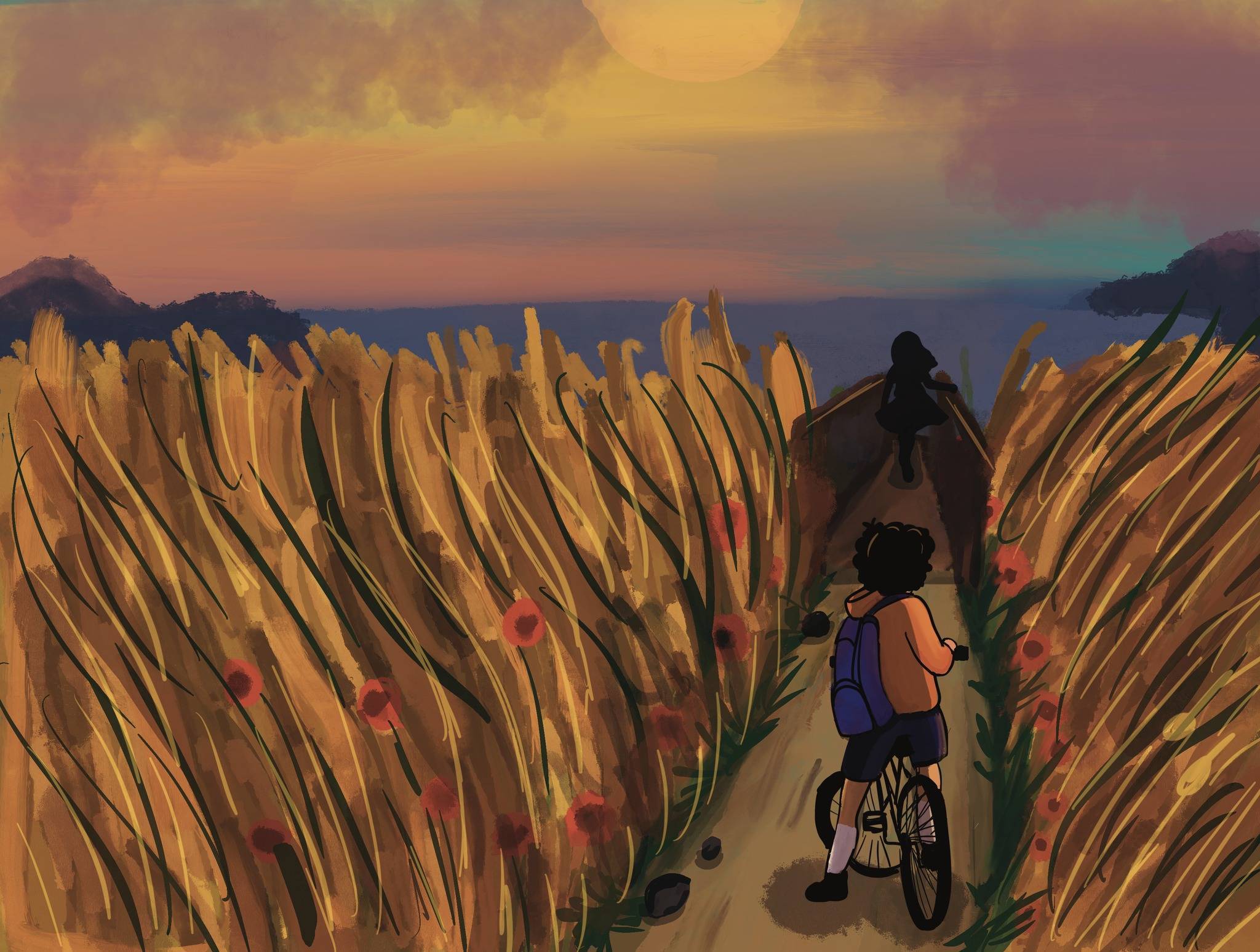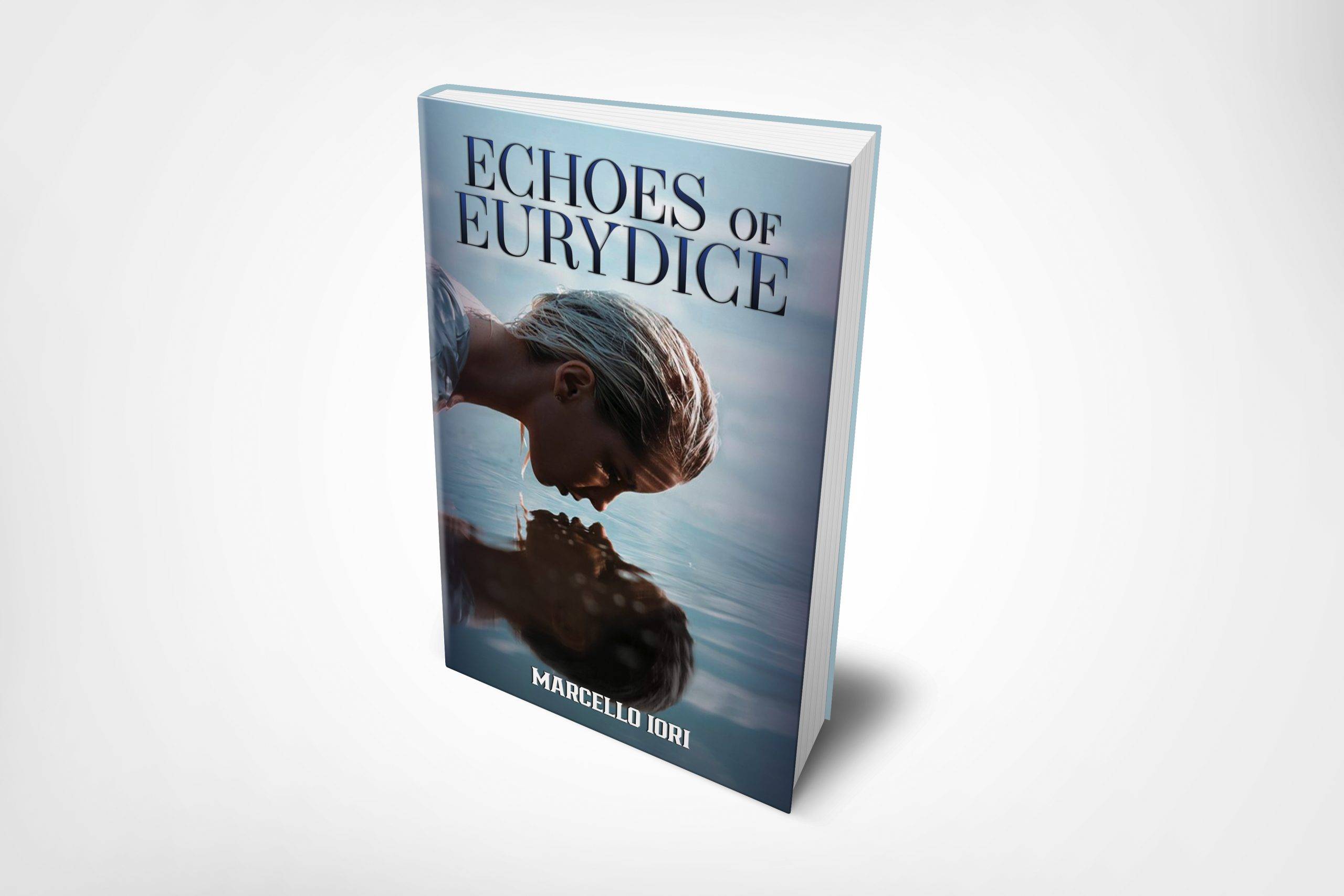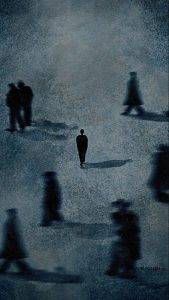We are in a small town in Calabria, in the mid-1980s. A terrible crime is about to be committed against an eleven-year-old kid.
A new novel of mine was recently published in Italian. I am eagerly working on the translation, intending to make an English edition, of course.
This novel, more than any other, deserves all possible effort to be offered to the world in more languages.

Below is an excerpt. If you read it, let me know what you think.
We go into the extract piece without further ado.
This truculent scene spreads over the whole story like a shadow, opening cavities, doubts and questions.
We are in a small town in Calabria, in the mid-1980s. A terrible crime is about to be committed against an eleven-year-old kid.
What is a Grangia? Originally, in ancient times, it was a warehouse where seeds and grain were stored, and over time it became a full-fledged farm, then fell into disuse. There are also some in France.
Excerpt from The Towns of Solitude
A small Grangia in the heart of the Sant’Andrea countryside. Uninhabited, unattended. There is also one in Vitrusi, built with the advent of the Basilian monks, for grain, guardians of seeds.
A different life.
Smells of burnt grass and pine needles. The small farm overlooks an open space whose edge slopes down to the Gulf of Squillace, brushed by the late afternoon sun.
There shouldn’t be anyone there at that hour but he saw a group of kids passing by.
Brats. Cotrareddi.
He’s been there for a while, it’s not the first time he’s noticed them. Three kids the same age as his. They cycle their bikes pretending to ride motorbikes. He has seen them at Grangia throwing stones at the fields in the valley or challenging each other to all sorts of competitions. One of the last ones, they were pissing the farthest. They lined up two metres away from the Grangia wall to see who could stain it the longest. Things that at his age he could not even imagine.
Now they stand above, on the cemented road, he is certain they will not return, but he makes sure they cannot see him. And anyway, from the road that turns towards the Marina, it is not possible to see the Grangia. From there, a dirt road descends that turns around the rock on which, high up, are the houses of the Andreolesi, elderly people who no longer want to move.
In a couple of hours, it will be dark.
He throws the sack over his shoulder and enters the Grangia from the ravaged side, open to the sky. Further on, he disappears into the shadows, the sun’s rays penetrate it like cracks in the rock, highlighting the specks of dust, making the room ghostly.
He will only do it once, once and then no more. He has already paid for his victim. As a child, Dad used to take him to witness the slaughter of pigs, a ritual in many parts of Calabria that is celebrated in January. The first few times he had to put his hands over his eyes, and peek between the fingers. At school, some boys teased him because he had a strong country smell, so when Dad took him to see the execution of the pigs he imagined that to make them stop harassing him he could treat them likewise. He imagined this for years until he started a family. Since things went wrong with his wife, however, he went back to dreaming about those slaughterhouses.
His father used to tell him that people heard the pigs grunting all the way to the road.
Hysterical grunts, chains rattling to keep their weight up.
“But the worst thing is the stench. Stench of blood and urine.” He repeats this in a low voice, but those are his father’s words.
Stench of blood and urine.
He has been to the Grangia several times to make sure it is a safe place, and after dark it is. The women cook and the children have to go home. No one walks because, with the early heat, the best thing to do is to go down to the Marina. The elderly, on the other hand, stay in the village under the trees to seek coolness.
The pira kills… sometimes. (Pira means Hotness)
Dad is old, one of those who is in danger of collapsing at any moment. Mum died because she worked too much and then drank wine on the sly convinced that it would ease her sorrows.
Dad was not easy. Old age took away the monster he kept hidden inside, but sometimes those cursed marks are still visible. A family damnation. Males grow up loving the perverse, just like Dad and his brother, and so he couldn’t risk avoiding that condemnation himself. Better to vent it now than carry it for life.
With both arms, he forces the chain to make sure it holds. In the sack are the rest of the tools.
The stench of blood and…
A noise behind him, the light kind, of footsteps stepping on branches or dry leaves. Who the hell is that?
He turns around. It looks like a dwarf, but he quickly realises it’s one of the kids. The strange one, who looks German. A handsome boy.
When he watched them compete in the pissing contest, he observed with interest. Another world. In his days, people like the german-kind boy were born to women who had been with Nazi stinkers. People who never made it up the mountain but raided women and men in the navy.
He stands behind a pillar and waits, hoping the boy will go away.
Holds his breath.
Even though several metres separate them, he knows that children have a kind of sixth sense. The problem is that he has left the sack under a blade of light.
* * *
Friends greet him, and they part. Today he won the bike race. He could win it all the time but if he does then they snubhim. It already happened with maths homework, they used to see each other at Mariano’s but then the fact that he was better than them didn’t help. Now Maruca goes to Mariano’s house for snacks or bike rides.
He cannot conceal the fact that he is a geek. Dad is someone who studied, one of the few who made it. He always tells him that now it’s up to the younger generation to do something to improve society.
Earlier he saw someone going down to the Grangia. He should mind his own business, but curiosity gives him no respite. Mum says curiosity kills, and if that were true Dad wouldn’t know so many things.
Without moving his pedals, he launches himself along the curving dirt road and in a few seconds he is in front of the old structure. There seems to be no one, but on the other side it is open, part of the walls collapsed during the Second World War.
Blame the Nazis.
He gets off his bike, and drops it on the ground, halfway down. As he walks to the bare side of the Grangia, he looks through the cracks in the structure, certain he has caught a movement.
The Andreolesi all know each other, he just hopes it’s not the school bullies… otherwise it ends badly. They leave him alone because Dad is an important one, but if they catch him there they might do anything to him and then say they had nothing to do with it.
He kicks over some stones and enters the Grangia. The light is lower in the distance but on the ground is a sack that wasn’t there before, and he knows it wasn’t there before because he’s been there with friends. Precisely because no one goes there, it has become their hiding place for the summer.
Then curiosity takes hold of his feet and moves them in that direction. He notices a chain falling vertically from above, it has a hook, the big kind used for cattle or heavier loads.
He moves forward until he sees the tip of a saw peeping out of the open sack. Rusty. Stripped of any positive feelings.
It is clear that the man who was there left that stuff there on purpose.
He expels the air from his mouth, realising he has been holding it in for a long minute. Suddenly it is cool. He lifts his head to a pillar, a detail shakes him inside. The toe of a boot. Someone is behind it. He opens his mouth but the words don’t come out. He should not be there. He feels an excruciating sensation, bends his stomach and goes up to the throat. He would gladly step back if he didn’t know that to escape now would cost him dearly.
The toe of that boot becomes a leg. Half of the man behind the pillar is now visible. He looks at him with one eye and half his lips curled into a grin.
Grandfather used to tell him that the Devil, during the Second World War, did not manage to climb the mountain with the Nazis but put a curse on it, which is why children are better off going back to their homes at a certain time.
“Saint Andrew help me,” he whispers.
* * *
It is night.
He does not dare to leave, it does not seem dark enough to him.
He holds his hands to his face while leaning back on his thighs, he spies the dark horizon where just before there was the Gulf of Squillace.
He sighs and decides to get up.
He is shocked by what he has done, but the pleasure is so intense that it devours him from the inside. Similar to the pleasure of sex. Similar to the pleasure of good food.
Only similar, because there is also something new, a mixture of horror and gratification, this is how it feels to be cursed. His father knew this, but before this evening he had never experienced it on his own skin.
The hands over his face left streaks of blood like fresh paint on canvas. The darkness hides them.
When he re-enters, he walks to a small light pointed at something dangling from the hook of the chain. Two soft, lifeless bare legs.
Not a bad work, he must admit.
He wonders what he will do with the pig he has bought, he certainly won’t be able to come to the Grangia any more; from tomorrow the whole town will be in an uproar over the disappearance of the ‘German’ child.
The boy screamed. First, he had to stun him and cut out his tongue. When he woke up, he realised he was suspended a metre off the ground, hooked onto something that pierced his upper back.
He had tried to scream, but it had come out a stunted sound.
That was the climax of his pleasure, seeing the ‘German’s’ little feet kicking in the void, begging for a ground they would never again touch while alive, because that damned man, had hurt him by bringing him a metre closer to heaven.
“Stench of blood and piss,” he whispers.
He spits on the ground as if he can still smell it and has it on him.
The Towns of Solitude
by Marcello Iori


